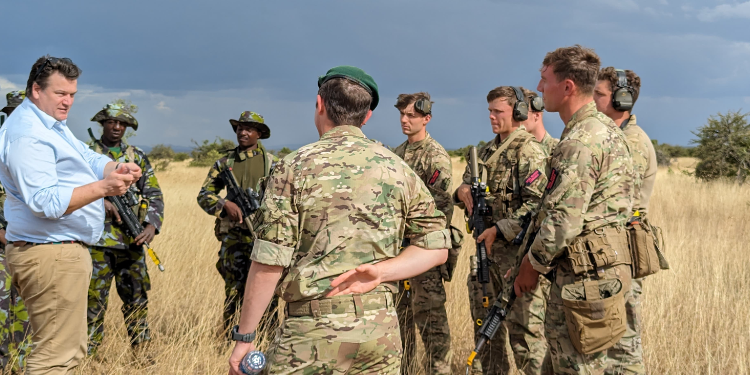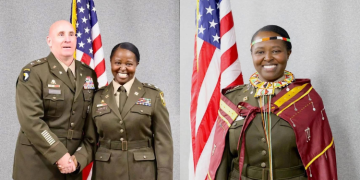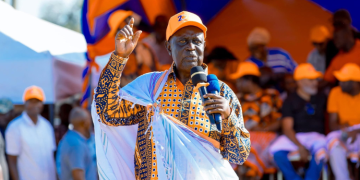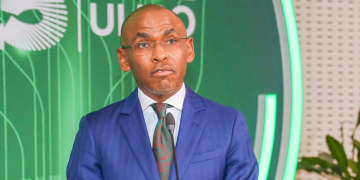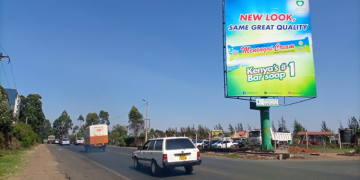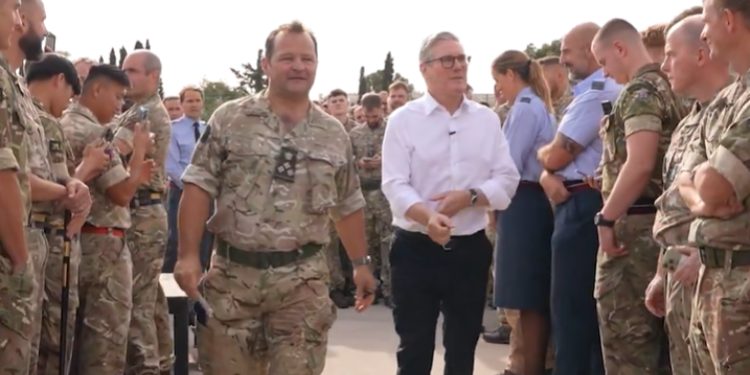The United Kingdom Ministry of Defence has responded after seven Kenyan nationals successfully proved in a London Family Court that they were fathered by British men, including soldiers stationed in Kenya.
The group won the case in a ruling on October 3, 2025, after using publicly available DNA databases to confirm paternity, marking the first time such evidence had been accepted in a UK court for this purpose.
Six of the fathers were soldiers serving at the British Army Training Unit Kenya (BATUK), and one was a civilian contractor. The ruling now enables the claimants to pursue British citizenship, as well as other legal rights that come with formal recognition of parentage.
They were represented by British solicitor James Netto, who collaborated with geneticist Denise Syndercombe Court on a project in the Nanyuki region, home to the largest British military base in Africa. The team collected DNA samples and testimonies from locals who suspected they were the children of British servicemen.
7 Kenyans win case to prove UK soldiers are their fathers
Using commercial DNA databases, the team was able to identify matches in the UK. Netto then contacted those individuals through social media, but many refused to engage or blocked communication attempts once the nature of the inquiry became clear.
“For many families, today’s hearing marks the end of an incredibly difficult journey that for so long felt impossible. Children and young people who previously only had questions now have answers,” said Netto.
Also Read: Exposed: Inside British Soldiers’ Controversial Initiation with Kenyan Sex Workers
Andrew Macleod, a lawyer and advocate who helped organize the DNA initiative, said he hopes the recent court decisions will compel the UK Ministry of Defence to take more responsibility for claims made against its servicemen.
A spokesperson for the Ministry of Defence, while responding to the BBC, said that “while paternity claims against UK Service Personnel are a private life issue, the government cooperates with local child support authorities where there are claims relating to paternity”.
This courtroom victory for the Kenyans follows a decision by the British High Court in August, which ordered UK government agencies to disclose the last known contact details of 11 British soldiers alleged to have fathered children in Kenya during their deployment near Nanyuki.
High Court ruling on British soldiers who allegedly fathered Children in Kenya
In the ruling, Sir Andrew McFarlane, President of the Family Division, instructed the Ministry of Defence, the Department for Work and Pensions, and HM Revenue & Customs to release the names and last known addresses of the men within one month. The decision represents a breakthrough for families seeking recognition and justice after decades of abandonment.
Also Read: UK MP John Healey Meets Family of Agnes Wanjiru, Killed by British Soldiers
The 11 cases involve children born as far back as the 1990s, many now in their 20s and 30s, all believed to have been conceived near the BATUK base. The majority are of mixed race and have grown up in impoverished communities where their appearance and absent fathers have made them targets of social exclusion and stigma.
Court filings revealed a clear pattern in birth dates, with a notable concentration of births in October and November—coinciding with the end of nine-month military rotations that typically begin early in the year. This correlation added further weight to the claims.
The mothers, all Kenyan women, testified to having consensual relationships with British soldiers who left the country and never made further contact. Despite repeated efforts by some mothers to reach out to the UK, they were met with silence.
In court, Rob George KC, representing the children, explained that DNA testing had ruled out Kenyan paternity, making it “highly probable” the fathers were British servicemen or associated civilians.
Netto, who personally traveled to Kenya with DNA testing kits, described the 11 families involved as just the “tip of the iceberg.” His research uncovered a multi-generational pattern of British soldiers fathering children in the region and leaving without acknowledgment or support.
“There are many more people near BATUK in a similar situation,” said Netto, adding that the next challenge will be tackling cases where children have even less information about their biological fathers.
Follow our WhatsApp Channel and X Account for real-time news updates
